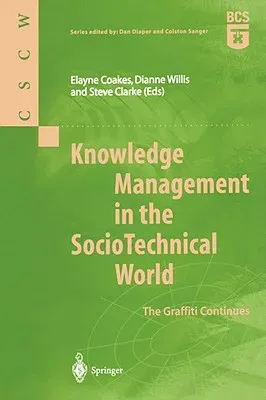Elayne [oakes, Dianne Willis andSteve Clarke The effectiveuse of
knowledge management in organisations is an essential factor in their
successful operation, but knowledge management is a many faceted domain,
in which there is a danger of emphasising only a limited view. The
purpose of this book is therefore to present for discussion those issues
which practitioners and researchers havefound to be critical to
understanding and progress within the knowledge management domain. This
seems to haveled quite naturally to the study of knowledge management
from three perspectives: tech- nology, organisationsand people, which in
turn makes this the first text to present a sociotechnical view of
knowledge management. Knowledgemanagement has been a major topic for
managementacademics and practitioners alike in the 1990s.It may be seen
as the extraction and conversion of tacit knowledge on an individual and
organisational levelinto explicit knowledge, the latter often taking the
form of specific electronic tools or assets which can be manipulated for
competitive gain (e.g, intranets, groupware and knowledge repos-
itories). There is some scepticism about the extent to which this often
highly sub- Tacit knowledge is often described as the jective knowledge
and learning can "hunches, intuition and know-how"ofpeople;or actually
be made explicit, and a feeling "skills, routines, competencies". that
knowledge management is no more than a new form of technology. But
knowledge is much more than technology: it is personal, often dormant or
unconscious and closely bound up with learning and organisation theory.


